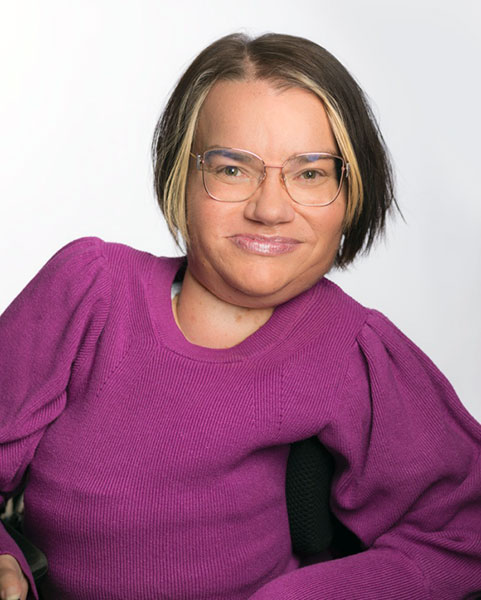Personal assistance in Sweden

Jessica Smaaland Fully committed IL activist with political engagement in the Swedish Feminist Initiative and is the political secretary at the Swedish cooperative for personal assistance - STIL
In Sweden there are changes in the law being viewed for personal assistance. One change that is now on the table is to make the state solely responsible for personal assistance and not as it is today – a division between the state and the municipalities.
In March, results were presented from an investigation suggesting that personal assistance should be entirely decided and paid for by the state. This is something that the Swedish cooperative STIL has been lobbying for a long time. If this proposal were to go through, those people who currently have their personal assistance granted by the municipality will be transferred to the Swedish Försäkringskassan, or the national authority.
The chairperson of STIL was involved as an expert in this investigation. This allowed for STIL to influence the work promoting the state as solely responsible to end the fact that those having personal assistance through the municipality are in arrest as they cannot move with their assistance without once again having to apply from the beginning. Not knowing the outcome people stay put. STIL is particularly pleased that the investigation proposes that the Independent Living movement's definition of personal assistance be written into the law as a quality criteria. This means that the assistance user has the right to decide who works as a personal assistant, when and where the assistant should work, and what the assistant should do and how.
A state responsibility would also mean that a limit of 20 hours of basic needs would no longer be needed to entitle a person to personal assistance. STIL thinks that everyone who needs personal assistance to be able to live a self-determined life in the community should be able to have the service, this though was not possible to get into the new proposal.
The investigation concluded that a limit of needs is needed and gave two alternative proposals. One is based on the fact that it is practice, i.e. the courts, will decide how much basic needs one needs to be eligible. The second proposal is that it should be written into the law that one needs the minimum of three hours of basic needs and 20 hours of other needs a week to be entitled to personal assistance. None of these suggestions are entirely good, but STIL believes the latter would allow more people to receive assistance if the needs assessment is carried out as it is today.
In June, STIL submitted their referral response to the investigation addressing all these and other matters in more detail. This response can be found on the STIL website. The government office is now going through all the consultation responses before making a proposal to the legislative council. Among other things, the legislative council checks that everything is consistent with other legislation. The government will then send a final proposal to the Riksdag or the Swedish parliament, which will then decide on the legislation changes. As of now it is not known if the proposals will become reality, but if everything goes as planned, the state will become the authority with the responsibility for personal assistance on January 1, 2026.
This was the last article in the Disability Rights Defenders Newsletter September 2023
Thank you for reading this fall edition of the Disability Rights Defenders Network Newsletter. We find it important to stay on top of what is happening in countries regarding personal assistance as this is an important service allowing many of us to live lives of self-determination with participation. The concept of Personal Assistance was brought to Europe in the 80s by leaders of the Independent Living movement who were also the founders of the European Network on Independent Living – ENIL. One of ENILs purposes is to promote personal assistance services and legislation, and other services and legislation that support Independent Living according to Article 19 of the United Nations Convention on the Rights of Persons with disabilities (CRPD). Since the 80s we have seen laws adopted providing personal assistance in European countries with Sweden being the first to adopt the LSS legislation making Personal Assistance a right for those in need. On the other hand, we also see cuts to services for disabled people which are both against the CRPD and are reducing self-determination and the possibilities to participation of disabled people.
In a next newsletter we plan to follow-up cases on personal assistance taken to courts to see the trends in this field. If you have a case you would want us to highlight please contact me at Jamie.bolling@independentliving.org.
Thank you again for your interest and support to the Disability Rights Defenders Network.
Jamie Bolling
Director of the Independent Living Institute in Sweden.

